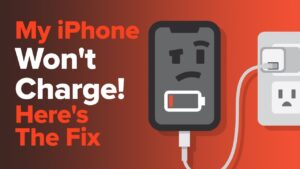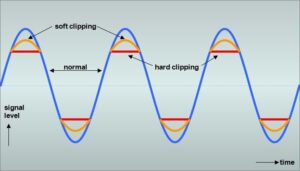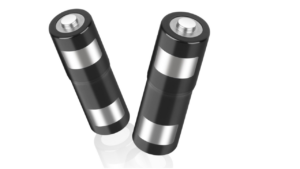Do I Need A Preamp For My Car Audio? The answer is yes, and I’m here to help you understand why. A preamp, short for preamplifier, plays a crucial role in enhancing the audio quality of your car’s sound system. It serves as the intermediary between your car’s audio sources, such as a CD player or smartphone, and your car’s amplifier. By boosting the signal strength and controlling the audio levels, a preamp ensures that your music sounds clear, balanced, and distortion-free. So, if you want to enjoy the best audio experience in your car, a preamp is a must-have accessory. Let’s dive deeper into the details!
Do I Need A Preamp For My Car Audio
Car audio systems have come a long way in recent years, offering a multitude of features and options for music lovers on the go. From built-in amplifiers to advanced equalizer settings, modern car audio systems provide an immersive listening experience. However, one question that often arises is whether or not a preamp is necessary for optimal sound quality. In this article, we will explore the role of a preamp in a car audio system and help you determine whether you need one.
What is a Preamp?
Before delving into the necessity of a preamp for car audio, let’s first understand what a preamp is. Short for preamplifier, a preamp is an electronic device that boosts the low-level audio signals from a source to a level suitable for amplification. It serves as an intermediary between the source and the amplifier, ensuring that the audio signal is clean and free from distortion.
In the context of car audio, a preamp typically refers to the preamp outputs found on the head unit or receiver. These outputs are designed to connect to external amplifiers, allowing for greater control over the audio signal before it reaches the speakers. Preamp outputs are often labeled as “preouts” or “RCA outputs” and can be found on the rear panel of the head unit.
The Benefits of a Preamp for Car Audio
While a preamp may not be a necessity for every car audio setup, it can offer several benefits, especially for those aiming for a more customized and enhanced sound experience. Let’s explore some of the advantages of using a preamp in your car audio system:
1. Improved Sound Quality and Control: By utilizing a preamp, you gain control over the audio signal before it gets amplified. This allows you to fine-tune the sound according to your preferences, adjusting the bass, treble, balance, and other audio settings. A preamp provides greater flexibility and precision in shaping the sound to your liking.
2. Ability to Connect Multiple Amplifiers: If you have a complex car audio setup with multiple amplifiers powering various speakers or subwoofers, a preamp becomes essential. It allows you to connect and control multiple amplifiers simultaneously, ensuring proper synchronization and output levels for each component.
3. Better Signal-to-Noise Ratio: Preamps are designed to boost the audio signal while minimizing noise and interference. They provide a clean and robust signal, resulting in improved clarity and detail in your music. This is especially beneficial when listening to low-level audio sources or in environments with potential electrical interference.
4. Compatibility with Aftermarket Audio Equipment: If you plan on upgrading your car audio system with aftermarket amplifiers, speakers, or subwoofers, a preamp is vital. Most aftermarket audio equipment requires a preamp input to function optimally and ensure the best performance.
When Do You Need a Preamp?
While a preamp can enhance your car audio experience, it may not be necessary for everyone. Here are a few scenarios where a preamp becomes essential:
1. When Installing Aftermarket Amplifiers: If you’re adding aftermarket amplifiers to your car audio setup, a preamp is a must. It provides the necessary signal level to drive the amplifiers and allows for precise control over the audio signal.
2. When Using High-Power Speakers or Subwoofers: High-power speakers or subwoofers often require a stronger audio signal to deliver their full potential. A preamp ensures that the audio signal is at an appropriate level for these components, maximizing their performance.
3. When Seeking Customization and Fine-tuning: If you are passionate about audio and enjoy tweaking and customizing the sound to your preference, a preamp is highly recommended. It empowers you with more advanced audio adjustment options, letting you fine-tune every aspect of the sound.
Choosing the Right Preamp
When it comes to selecting a preamp for your car audio system, there are a few factors to consider:
1. Compatibility: Ensure that the preamp is compatible with your car audio head unit or receiver. Check for the correct connection type (RCA, speaker-level inputs) to ensure a seamless integration.
2. Features: Look for preamps that offer the features and controls you desire. This could include adjustable EQ settings, subwoofer level control, high-pass and low-pass filters, and more.
3. Budget: Preamps come in a wide range of prices. Determine your budget and find a preamp that offers the features you need within your price range.
4. Reviews and Recommendations: Research reviews and seek recommendations from other car audio enthusiasts to ensure you choose a reliable and well-performing preamp.
While a preamp may not be a necessity for every car audio enthusiast, it can significantly enhance sound quality, provide greater control, and enable customization. If you’re looking to take your car audio experience to the next level, especially when using aftermarket equipment or seeking fine-tuned sound, investing in a preamp is worth considering. It allows you to unlock the full potential of your audio system and create a truly immersive and enjoyable listening experience on the road.
Frequently Asked Questions
Question: What is a preamp and do I need one for my car audio?
Answer: A preamp, short for preamplifier, is an electronic device that amplifies low-level audio signals from your car’s audio source before sending them to the main amplifier. It helps to improve the overall sound quality and performance of your car audio system. While not essential, a preamp can greatly enhance your listening experience, especially if you’re looking for increased clarity, volume control, or if you’re using high-quality aftermarket speakers.
Question: How does a preamp improve my car audio system?
Answer: A preamp acts as a signal processor, allowing you to fine-tune the audio signals before they reach the amplifier. It can help to boost weak signals, balance the sound frequencies, and eliminate unwanted noise or distortion. Additionally, many preamps offer built-in features such as equalization (EQ) controls, subwoofer control, and even Bluetooth connectivity for seamless integration with your mobile devices.
Question: Can a preamp work with my factory car stereo?
Answer: Yes, a preamp can work with your factory car stereo system. Most preamps are designed to be compatible with both factory and aftermarket car audio systems. However, you may need additional adapters or wiring harnesses to ensure proper connectivity. It’s always recommended to consult with a professional or refer to the preamp’s user manual for specific installation instructions.
Question: Will a preamp drain my car battery?
Answer: A correctly installed preamp should not significantly drain your car’s battery. Preamps are designed to draw minimal power, and many modern preamp models come with power-saving features such as auto-off functionality when no audio signal is detected. However, improper installation or leaving the preamp powered on when the car is turned off for an extended period could potentially drain the battery. It’s essential to follow the manufacturer’s instructions and consult with a professional installer if needed.
Question: Are there any alternative options to a preamp for improving my car audio?
Answer: Yes, there are alternative options to a dedicated preamp for enhancing your car audio system. Some car head units or amplifiers have built-in preamp outputs that can be used to connect external amplifiers or signal processors directly. Additionally, certain aftermarket speakers or amplifiers may have built-in features that eliminate the need for a separate preamp. However, if you’re looking for maximum control and flexibility in tweaking your audio signals, a dedicated preamp is still a popular choice among car audio enthusiasts.
Question: Do all car audio systems require a preamp for optimal performance?
Answer: Not all car audio systems require a preamp. If you’re satisfied with the sound quality and performance of your current system, you may not need a preamp. However, if you’re experiencing weak signals, distortion, or lack of control over audio settings, a preamp can significantly enhance your listening experience. It ultimately depends on your personal preferences and the desired level of audio quality you wish to achieve.
Final Thoughts
A preamp for your car audio system can greatly enhance your listening experience. It boosts the weak signals from your car stereo to a more powerful level, resulting in clearer and louder sound. Whether you are an audiophile or just someone who enjoys good music on the go, a preamp can significantly improve the quality of your car audio. It ensures that your speakers receive a strong and balanced signal, allowing you to fully enjoy your favorite tunes while driving. So, do you need a preamp for your car audio? The answer is yes, if you want to maximize the potential of your audio system and truly appreciate your music on the road.




